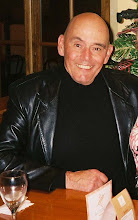Both the Washington Post and The New York Times are reporting Tuesday afternoon that the much-anticipated report of the Justice Department’s Office of Professional Responsibility (OPR) on how the torture memos came to be national policy will recommend not prosecuting Federal Appeals Court Judge Jay Bybee, Steven Bradbury and John Yoo for enabling the Bush Administration to torture prisoners in violation of US law and international treaties.
According to the Times, the OPR report says that while bad judgement and sloppy lawyering were involved by men who swore to uphold the Constitution when they took their places as loyal Bushies, none should face criminal prosecution. The only disciplinary action suggested referring the report to state bar associations for possible charges.
As if this is not bad enough, former high-ranking Bush officials are actually lobbying the DoJ to soften the already namby-pamby report even further. Lobbying? Is someone making a funny? Why would anyone in Attorney General Eric Holder’s office even take a phone call from John Ashcroft, Alberto Gonzales and Michael Mukasey or anyone who worked for them, let alone listen seriously to what they said?
Put bluntly, the Department of Justice is now on record as being officially soft on crime.
“This’ll Happen Again”
When Gerald Ford pardoned Richard Nixon for his role in Watergate, it raised a hew-and-cry across the land. The argument supporting Ford’s pardon went something like this: The nation is exhausted from two years of the scandal, Nixon has already been humiliated by being forced to resign and the country won’t be served by a drawn-out trial that only might result in The Trickster doing hard time.
The counter-argument came from people like my mother, who wasn’t a lawyer but truly understood rapacious politicians. She told me the night Nixon got his get out of jail free card, “If Nixon doesn’t go to prison, this’ll happen again. Some other president will do something even more outrageous and figure he’ll get away with it.”
My hunch is that Joyce, who died 10 years ago, is somewhere weeping. When she was alive, nothing pleased her more than being right; I cannot imagine mother taking any pleasure from her foresight that hot August evening more than 30 years ago.
The next time I visited my parent’s home west of Minneapolis. I wandered up the road to drop in on their neighbour, former Vice President Hubert Humphrey. He was already ill with early stages of the cancer that would claim his life five years later. I interrupted his quiet because I wondered what the man who thundered in 1948, "The time has arrived in America for the Democratic Party to get out of the shadow of states' rights and walk forthrightly into the bright sunshine of human rights" felt about pardoning the man who narrowly defeated him for President.
"A Bad Precedent"
We sat on the patio overlooking Lake Waverly sipping on lemonaide his wife brought us. A couple of Humphrey’s grandchildren were running around so after leaving the drinks, Murial went to keep watch on them as they played on the dock.
“I can’t imagine the pressure put on Gerry to pardon Nixon,” Humphrey said of Ford. “But if you’re president, you have to stand up to pressure.”
I remember chuckling and saying something like, “And as someone who served as LBJ’s VP for four years, you probably know a lot about standing up to pressure.”
“It might be good for the country right now,” he went on, smiling to acknowledge the truth in my retort. “But it’s a bad precedent for the future.”
It was the last conversation I ever had with Humphrey but his words came ringing back to me this afternoon: “It’s a bad precedent for the future.”
Tom Degan
1958-2023
To all Tom’s faithful readers of the Rant, we are sad to announce that he
passed away on December 7th, 2023. Thank you so much for th...

